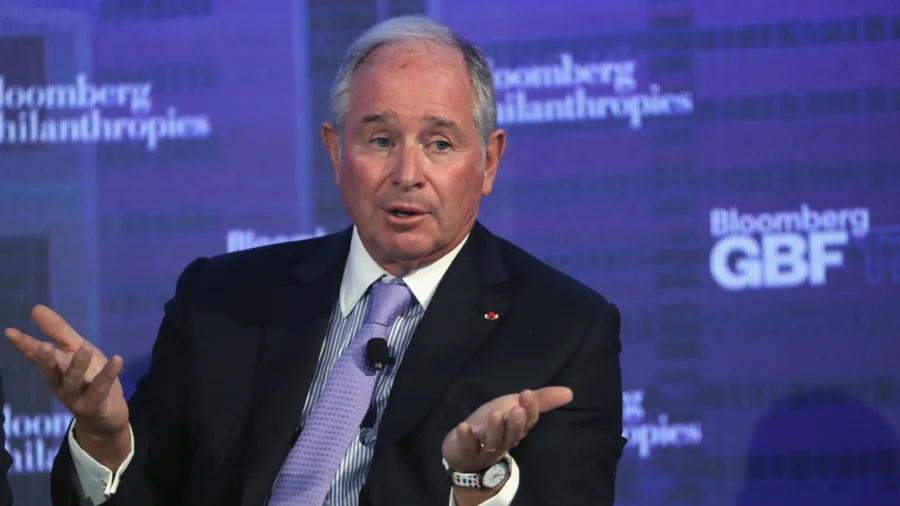Private-equity billionaire Stephen Schwarzman doesn’t think office workers worked hard enough during COVID-19.
Schwarzman, the Blackstone CEO whose fortune is estimated at $32 billion, told a crowd of investors at a ritzy Saudi Arabia conference known as “Davos in the Desert” that people who worked remotely during the pandemic “didn’t work as hard—regardless of what they told you.”
Of course, many Americans would argue they never worked harder.
Parents often had to juggle near-constant Zoom meetings and Slack messages while simultaneously helping children whose schools were shut. Others had to take care of babies and toddlers whose day cares were closed or help elderly family members quarantining with them.
To catch up on work, some parents ended up working late or starting early or putting in hours on the weekend.
Americans in particular reported spikes in stress levels during COVID-19.
One-third of U.S. adults reported experiencing stress, anxiety, and great sadness that was difficult to cope with by themselves, a significantly higher proportion than in other countries, according to a Commonwealth Fund report published in August 2020.
Mr. Schwarzman addressed remote work on Tuesday in the context of the impact on the commercial real estate market, where Blackstone has significant exposure as a major real estate investor.
“During the pandemic, people got used to staying at home,” Mr. Schwarzman said. “It was actually more profitable for them to stay home because one, they didn’t work as hard, regardless of what they told you. Second, they don’t spend money to commute. They can make their lunch at home. They don’t have to buy expensive clothes, so their incomes are higher.”
The official name of the conference held in Saudi Arabia is the Future Investment Initiative. During Mr. Schwarzman’s same panel discussion, JPMorgan Chase CEO Jamie Dimon discussed how 60 percent of his company’s employees are now in the office five days a week, while 30 percent are required to be in the office three days a week. “We track it,” Mr. Dimon said.
The JPMorgan boss added that the bank’s managing directors are required to be in the office 100 percent of the time.
“I don’t think you can lead people and work from home,” Mr. Dimon said.
Still, many employees are working remotely at least some of the time right now.
For example, about 58 percent of Manhattan office workers were at their workplace on an average weekday in late August and September, according to a survey from the Partnership for New York City. That’s up from 49 percent in September 2022 but down from 80 percent prior to COVID-19.
Just 12 percent of Manhattan office workers are in the office full time, according to that survey.
Mr. Schwarzman, the Blackstone CEO, estimated that 20 percent of U.S. office buildings are vacant and another 20 percent are leased but empty. He predicted that when existing leases expire, companies will cut back on the amount of office space they lease, leaving many office buildings—especially older ones—“un-survivable as economic entities.”
“That’s going to have a very bad ending,” Mr. Schwarzman said.
Blackstone told investors earlier this year it has slashed its exposure to U.S. office properties from more than 60 percent of its real estate portfolio in 2007 to less than 2 percent now.
The-CNN-Wire
™ & © 2023 Cable News Network, Inc., a Warner Bros. Discovery Company. All rights reserved.


